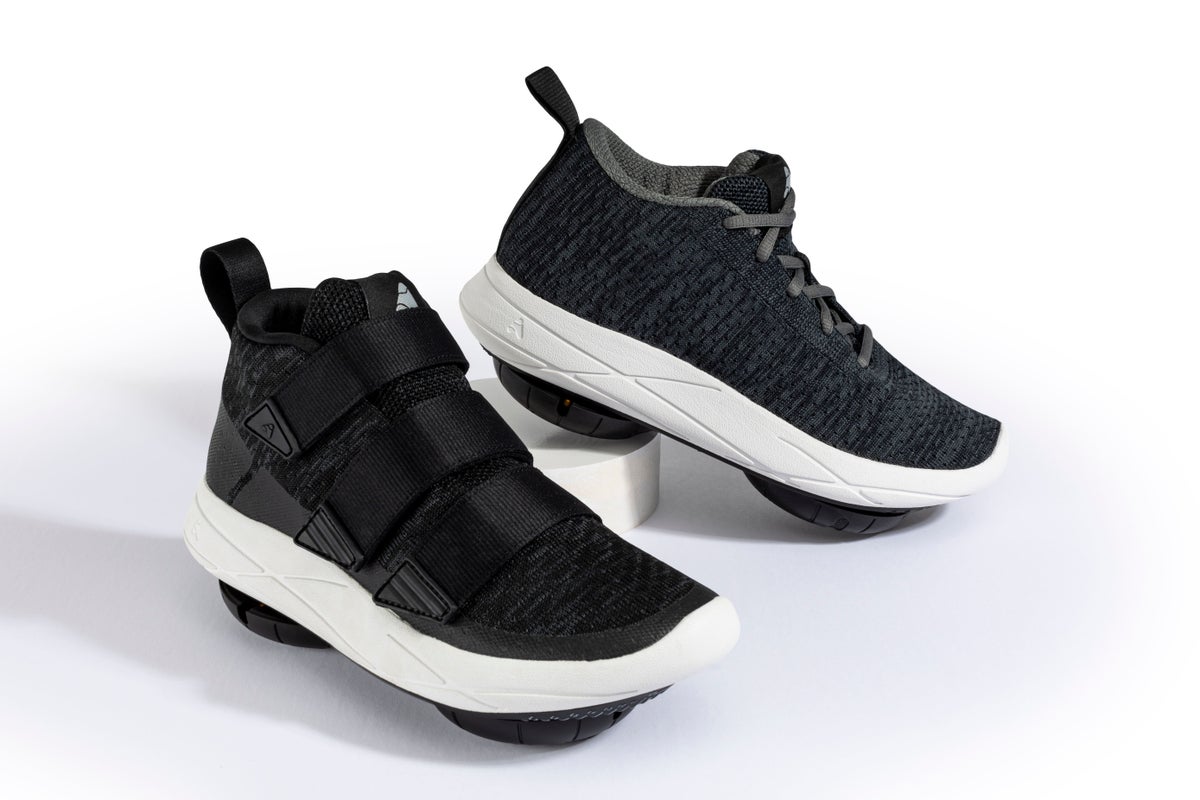
People with osteoarthritis who are eligible for knee surgery should be offered adapted shoes to help with their knee pain, the National Institute for Health and Care Excellence (Nice) has recommended in a draft.
The draft recommendation comes on the back of analysis seen by Nice which shows that shoes fitted with special rubber pods on their soles could save the NHS £1,958 per person when compared with standard care over five years.
The shoes, which resemble trainers with thick soles, are developed by AposHealth. They aim to reduce knee pain through improving the patient’s biomechanics by redistributing pressure away from affected areas.
The institute recommends the footwear for people who have met the referral criteria for total knee replacement, but who do not want – or cannot have – surgery. Non-surgical standard care must also have not worked well enough for patients to be eligible.
People with osteoarthritis of the knee can be in considerable pain going about their day-to-day lives and the evidence seen by our committee suggests this can be improved by wearing these shoes— Mark Chapman, interim director of Medical Technology at Nice
Along with the draft recommendation, Nice has launched a consultation on guidance on the use of shoes fitted with rubber pods.
Mark Chapman, interim director of Medical Technology at Nice, said that the recommendation will save the NHS money while also putting a new innovation onto the hands of health and care professionals.
“People with osteoarthritis of the knee can be in considerable pain going about their day-to-day lives and the evidence seen by our committee suggests this can be improved by wearing these shoes.
“This recommendation will not only save the NHS money by balancing the best care with value for money, but it will also put a new innovation into the hands of health and care professionals to enable best practice.”
Osteoarthritis, a condition that causes joints to become stiff and painful, is the most common type of arthritis in the UK.
It is estimated that one in five people aged over 45 have knee osteoarthritis in England.
The guidance from Nice is non-binding, and it is up to local health commissioners to decide whether to implement its recommendations.







